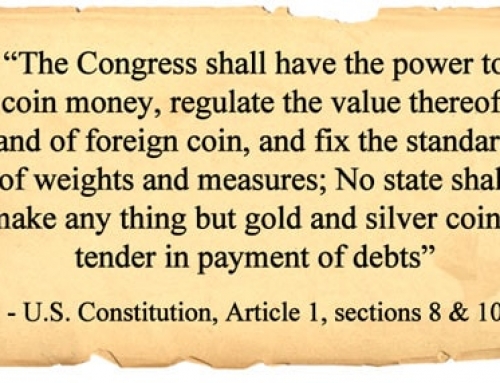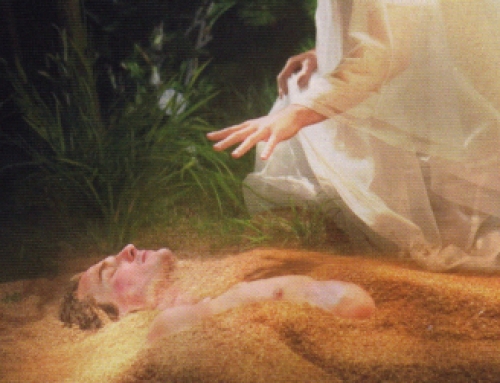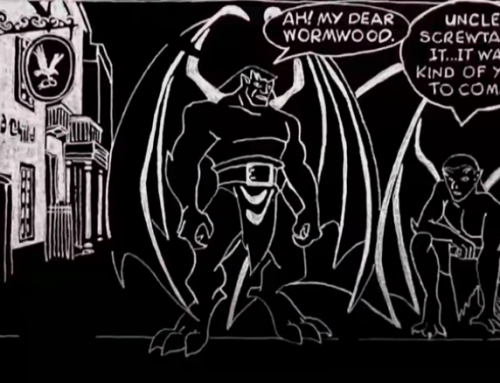Chapter 6: Tower of Babel – Unity as the Concentration of Power
July 28, 2021
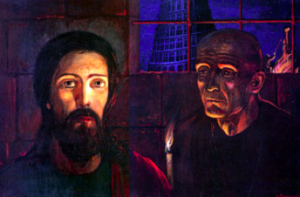 In his novel, The Brothers Karamazov, Fyodor Dostoyevsky creates a fascinating conversation between a Catholic Cardinal and Jesus who secretly returns to 15th Century Spain during the Inquisitions.1 The Cardinal questions Jesus’ judgment for rejecting the Devil’s offer of the kingdoms of this world during his testing in the wilderness (Matthew 4:8,9).
In his novel, The Brothers Karamazov, Fyodor Dostoyevsky creates a fascinating conversation between a Catholic Cardinal and Jesus who secretly returns to 15th Century Spain during the Inquisitions.1 The Cardinal questions Jesus’ judgment for rejecting the Devil’s offer of the kingdoms of this world during his testing in the wilderness (Matthew 4:8,9).
The Cardinal said, “But You might even then have taken the sword of Caesar. Why did You reject that last gift? Had You accepted that last offer of the mighty spirit [the Devil], You would have accomplished all that man seeks on earth… [including] the means of uniting all in one unanimous and harmonious ant heap; for the craving for universal unity is the third and last anguish of men. Mankind as a whole has always striven to organize a universal state.”2
Where did this craving to unite all in one “harmonious ant heap” originate?
Humanity has a God-given desire for community. From a biblical perspective, community originates in the triune God, takes human form in marriage and family, extends to our local neighbors and friends, and naturally reaches out to fellow citizens of our nation. Also, for Christians, as members of the body of Christ, there exists a spiritual bond of community that transcends natural human bonds. Beyond that, the Bible never equates “community” with a worldwide brotherhood or alliance of nations, or the formation of a universal state.
But instead of communities of created beings flourishing in accord with God’s created order, spiritual darkness infects the world’s political, cultural and economic systems with an obsessive drive to concentrate power and wealth in a human-centered, “universal unity.” God’s objection to this perverse “unity” was clearly established by his judgment of the Tower of Babel. The great tower became the biblical archetype representing humanity’s determination to consolidate all of life in ever-tighter circles of possession and control (Genesis 11:1-9).
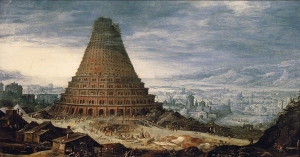 So what motivated the builders of Babel to act of one mind to build a great city with a dramatic tower reaching to the heavens?
So what motivated the builders of Babel to act of one mind to build a great city with a dramatic tower reaching to the heavens?
Matthew Henry, in his commentary on Babel, proposed that in order for the people to “unite in one glorious empire, they resolved to build this city and tower to be the metropolis of their kingdom and the centre of their unity.” Henry further proposed that Babel’s ruling elite, someone like Nimrod, “aimed at universal monarchy, in order to which, under pretence of uniting for their common safety, he contrived to keep [the people] in one body, that, having them all under his eye, he might not fail to have them under his power.”3
Matthew Henry recognized that regardless of contrived pretenses, the building of the great city with its tower was rooted in power and control.
God said: “If as one people speaking the same language they have begun to do this, then nothing they plan to do will be impossible for them” (Genesis 11:6).
God’s judgment of Babel was not so much directed at their apostasy or contempt for his rule, but rather, the Lord’s decision to disperse the people by means of language points to the danger he attached to their quest for unity independent of the Trinity (Genesis 11:7-9).
God’s objection to Babel reveals his love for his created beings. He knew the misery awaiting human history for choosing to pursue a universal state, whether Caesar’s Roman Empire, or Hitler’s National Socialist Germany, or Mao’s Communist China. He also knew the dark spirits driving humanity’s quest for a united world order – a quest that conditions men and women to surrender their personhood to a deceptive authority claiming to represent the “will of the people.” The objective of this collective authority is to prepare humanity to unwittingly welcome absorption into the Devil’s anti-reality where distinctive, individual personalities are crushed into submission to a coercive unity.
Babel’s initial quest to establish a universal state was thwarted by God in a dramatic division. Jesus later rejected the same kind of “unity” when Satan offered him the kingdoms of the world (Matthew 4:10). But humanity’s obsessive dream to “unite all in one unanimous and harmonious ant heap” still plagues the world.
Key Points:
-
Universal unity apart from God is a dark spiritual counterfeit of the God-given desire for community.
-
The Tower of Babel became the biblical archetype of fallen humanity’s drive to concentrate power and wealth under the control of a ruling elite.
-
Babel fell under judgment because humanity’s goal to impose a universal state on the world was deemed by God to be a threat to his creation.
Practical Application:
-
The dream of Babel still drives the contemporary quest for “universal unity.” Presently, this quest has taken the form of either a Progressive one-world government or an Islamic caliphate. The first is justified with a distorted claim of equity and compassion; the second by religious dogma. But note that both assert the historical inevitability of a utopian future, and neither tolerates dissent.


